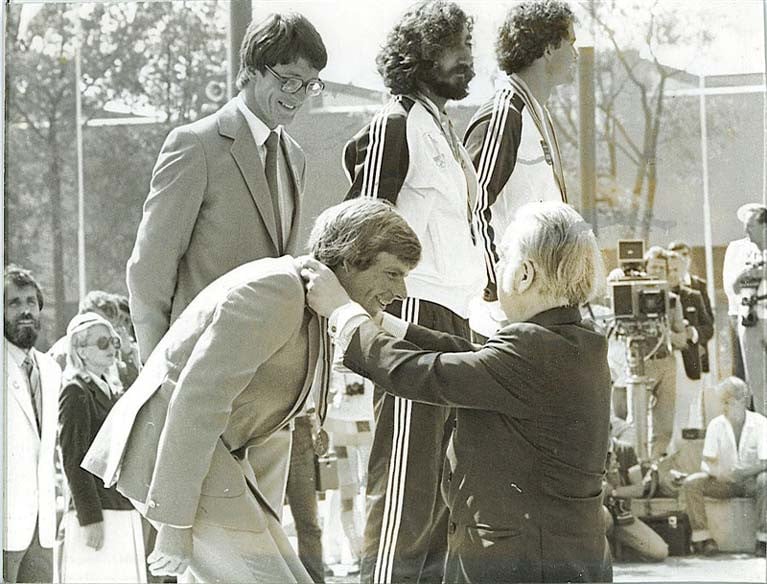With the world becoming unrecognisable as the invisible Enemy of the People takes over to make our lives Coronavirus-dominated and postpone the 2020 Olympics to 2021, in our not-so-splendid isolation we can find consolation in disappearing into the Afloat archives for items of interest, and preferably good news. For the one real consolation of history (which really only begins after at least 25 years have elapsed) is that at least we know how it all turned out, as the reality these days is that the worst thing about the current global pandemic (is there any other kind?) is its inherent uncertainty of outcome.
So when we look back to 1980 when David Wilkins of Malahide YC and Jamie Wilkinson of Howth YC won Ireland’s first-ever Olympic sailing medals – two Silvers – in the ferociously challenging Flying Dutchman class at the Moscow Olympics, it now has the glow of a golden era when all was well with the world. But as it happens, it was anything but a golden era, and the world was tense.
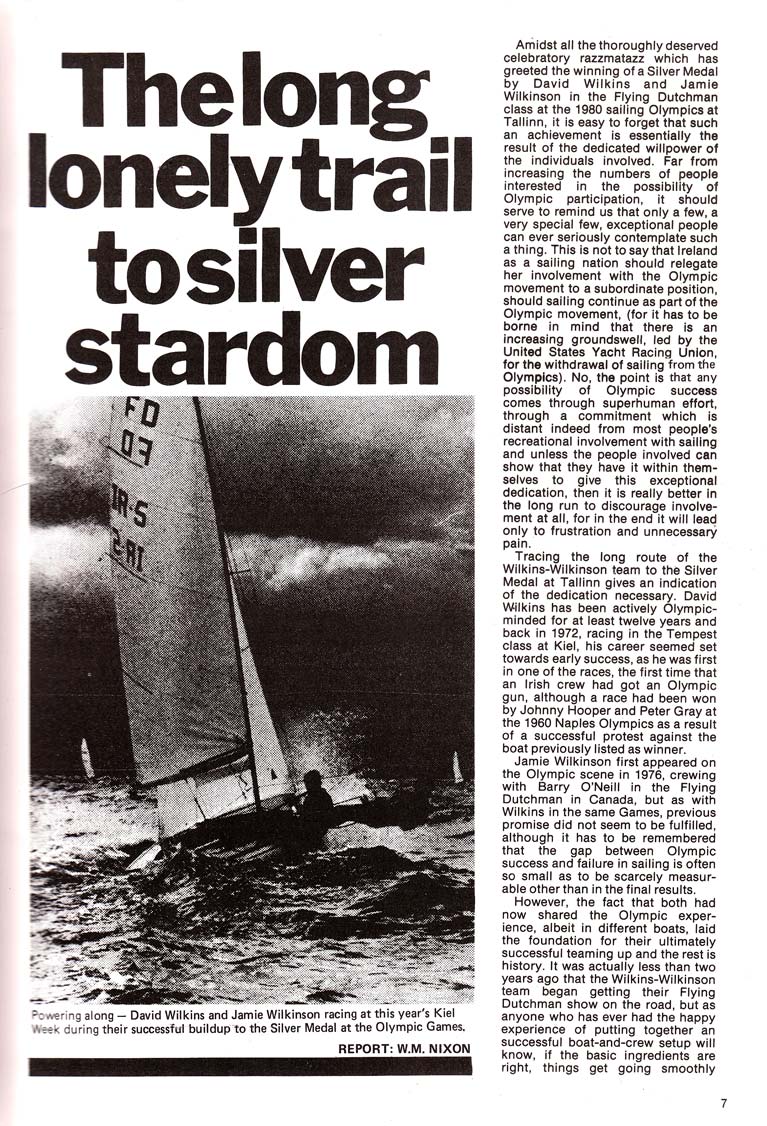 The outcome of the 1980 Olympics (above & below) as reported in the August 1980 edition
The outcome of the 1980 Olympics (above & below) as reported in the August 1980 edition
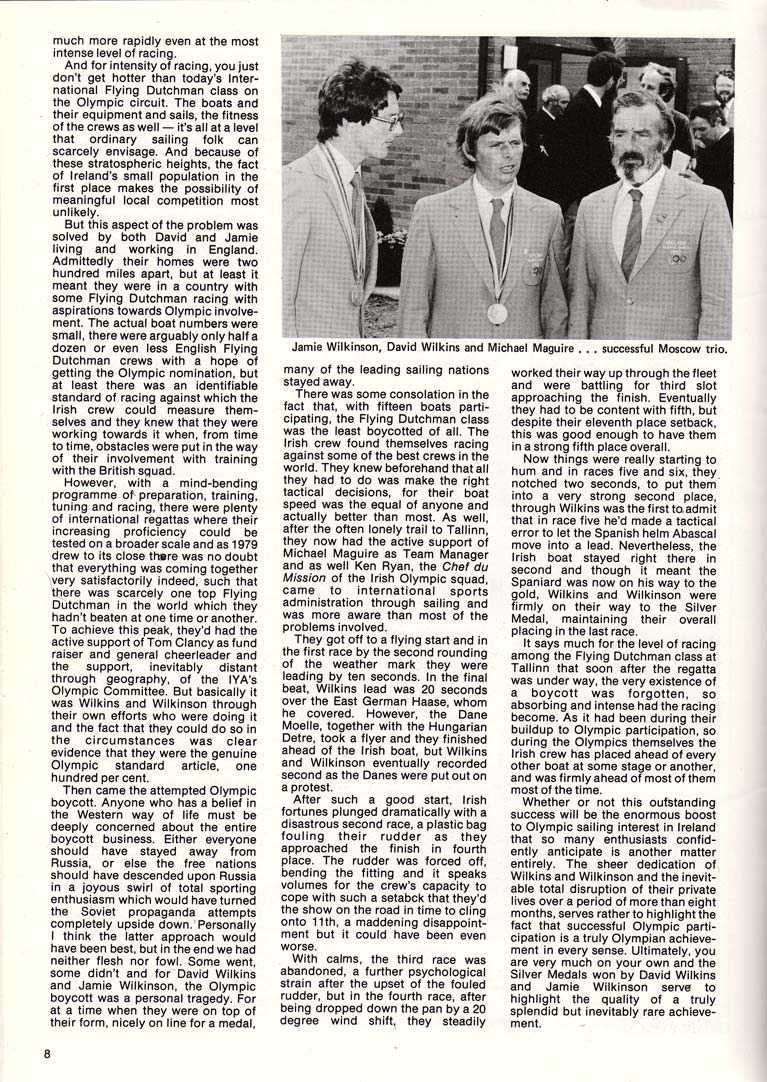
The main parts of the Moscow Olympics were held in the capital of what was then the Union of Soviet Socialist Republics, while the sailing events were staged in Tallinn in what is now independent Estonia. Gallant little Estonia is today seen as a bulwark of western democratic values, but in 1980 it was regarded from Moscow as little more than a glorified province of the 1980s version of Imperial Russia.
That 1980s version of Russian might was in the midst of an invasion of Afghanistan, in which they were ultimately no more successful than other would-be invaders of Afghanistan before and since. But nobody was to know that as the Olympic Games approached with the onset of the summer of 1980, and some of the more hawkish western nations decided to respond to the perceived illegal aggression against Afghanistan by boycotting the Moscow Games.
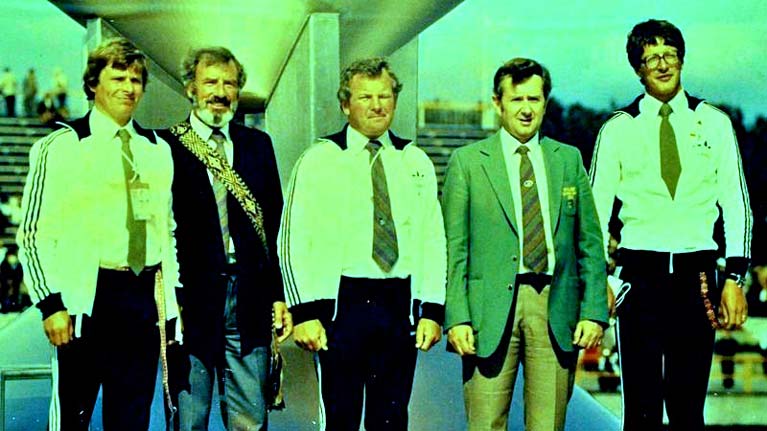 Before the start. The sailing team in Tallinn in 1980 with Irish international sailing administrator Ken Ryan, who was Chef d’Equipe for the entire Irish Olympic Squad of 1980. (Left to right) David Wilkins, Michael Maguire (Irish Sailing Team Manager) Kare Brevik (Meteorologist and Assistant Manager), Ken Ryan, and Jamie Wilkinson.
Before the start. The sailing team in Tallinn in 1980 with Irish international sailing administrator Ken Ryan, who was Chef d’Equipe for the entire Irish Olympic Squad of 1980. (Left to right) David Wilkins, Michael Maguire (Irish Sailing Team Manager) Kare Brevik (Meteorologist and Assistant Manager), Ken Ryan, and Jamie Wilkinson.
Others reckoned that such a boycott would solve nothing, and only provide needless mental torture for the athletes who had been bringing themselves to performance perfection precisely on the Olympic timeline. Opinions differed so much that within some nations, there were sports which did take part, while others didn’t.
Ireland was in a special situation, as the popular President of the International Olympic Committee, the overall global organising body, was our own Lord “Call me Michael” Killanin, a scion of the Morris family, one of the Tribes of Galway, and a man of many parts, being a sportsman, enthusiast, journalist, author, multiple company director, and a diplomat of formidable yet gracefully hidden talents.
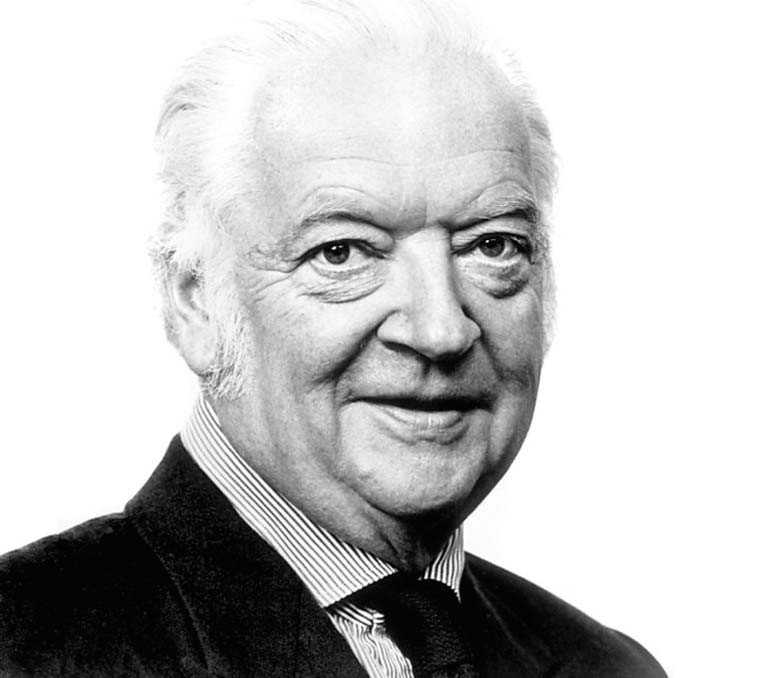 Lord Killanin (1914-1999), President of the International Olympic Committee from 1972 to 1980, and a man of many talents and enthusiasms.
Lord Killanin (1914-1999), President of the International Olympic Committee from 1972 to 1980, and a man of many talents and enthusiasms.
Somehow he managed to hold it all together such that a viable Olympics took place in a decidedly tense international situation. And for the Irish sailing squad, the high point came when Killanin and his top people descended on Tallinn for the awards ceremony in what was to be Lord Killanin’s last Olympics as President, and David Wilkins and Jamie Wilkinson received their Silver Medals from the man himself.
To say that it had been a long and difficult road for everyone to have reached this very special outcome is a massive understatement. But with the job done and the world moved perhaps a little further along the road of peace and some sort of sanity, there was now time and more available to savour what had been achieved. It was a very special moment for all the smaller sailing clubs of Ireland when the great and the good assembled at Malahide Yacht Club later in August 1980 to honour the Silver Medallists in the helmsman’s home place.
It was all in a much lower-key to the glitzy celebrations which welcomed home Annalise Murphy with her Olympic Silver Medal to the National Yacht Club in August 2016. But then, in 1980, Irish sailing was different, and in a very different world.
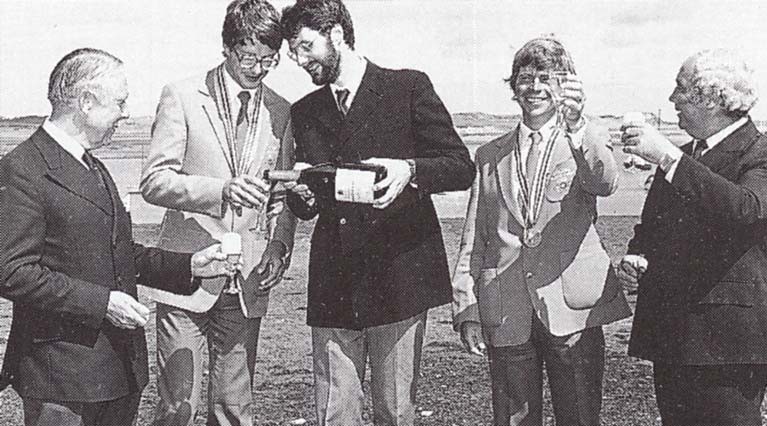 Bringing it all back home. The newly-won Olympic Silver Medals are celebrated in August 1980 at Malahide YC by (left to right) Bill Cuffe-Smith (Commodore Howth YC), Jamie Wilkinson, Peter Killen (Commodore, Malahide YC), David Wilkins, and Paddy Kirwan (President, Irish Yachting Association)
Bringing it all back home. The newly-won Olympic Silver Medals are celebrated in August 1980 at Malahide YC by (left to right) Bill Cuffe-Smith (Commodore Howth YC), Jamie Wilkinson, Peter Killen (Commodore, Malahide YC), David Wilkins, and Paddy Kirwan (President, Irish Yachting Association)


























